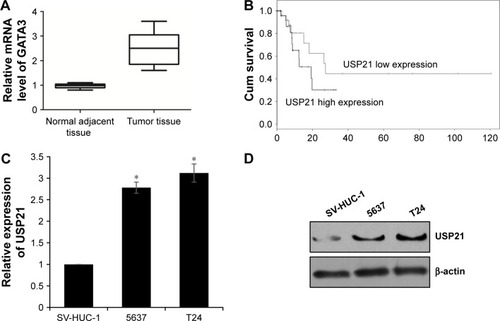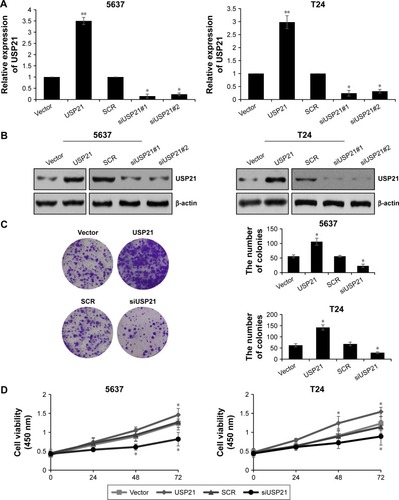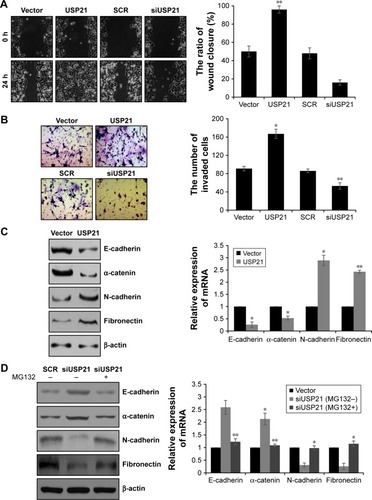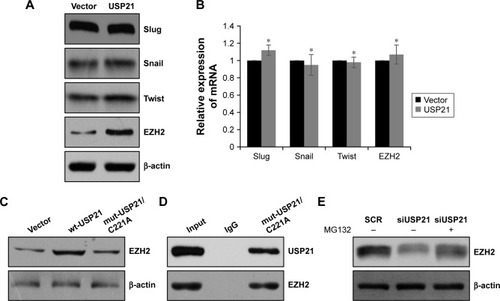Figures & data
Figure 1 USP21 is highly expressed in BC tissues and cell lines, and it predicted poor prognosis of BC.
Abbreviations: BC, bladder cancer; HUC, human urothelial cell; USP, ubiquitin-specific protease.

Table 1 Clinicopathologic variables in 66 bladder cancer patients
Figure 2 Overexpression of USP21 promotes proliferation of bladder cancer cells.
Abbreviations: SCR, scramble siRNA; USP, ubiquitin-specific protease.

Figure 3 USP21 promotes migration and invasion ability of BC cells and facilitates EMT.
Abbreviations: BC, bladder cancer; EMT, epithelial–mesenchymal transition; SCR, scramble siRNA; USP, ubiquitin-specific protease.

Figure 4 Identifying USP21 as a EZH2-interacting protein.
Abbreviations: co-IP, co-immunoprecipitation; USP, ubiquitin-specific protease.

Figure 5 USP21 stabilizes EZH2 through its ubiquitinase activity.
Abbreviations: Co-IP, co-immunoprecipitation; USP, ubiquitin-specific protease.

